Brigstow presents our 2022 Seedcorn Experimental Partnerships
Brigstow Institute
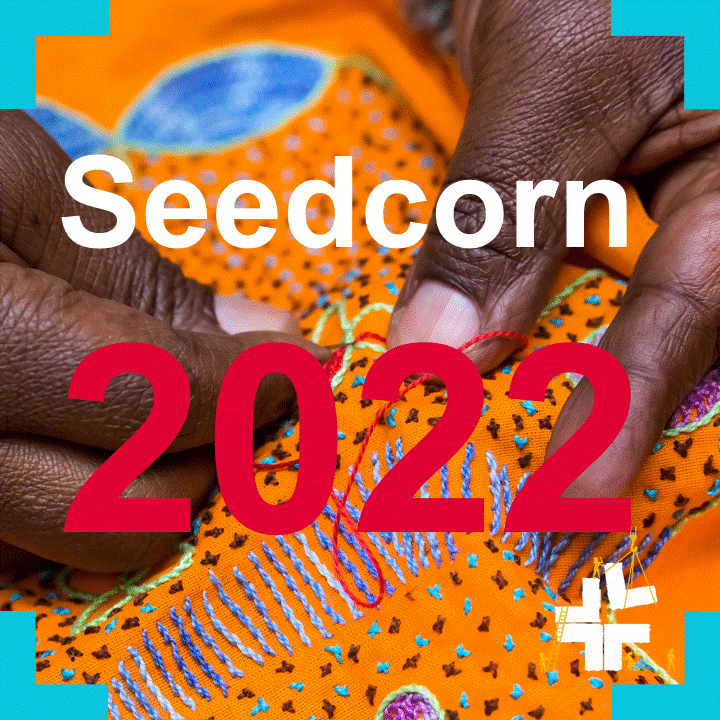
We are delighted to announce that the following research projects have been awarded Brigstow Institute Seedcorn Funding in our 2022 funding call.
Tim Cole, Director of Brigstow Institute says ‘The 2022 cohort of Brigstow seedcorn projects continue the tradition of drawing on interdisciplinary and co-produced ways of working to ask how we can live well in the 21st century. What is particularly striking about this year’s cohort is the focus of many of the project teams on the body, as well as thinking about the relationship between humans and the more than human world of animals and plants. At Brigstow we love this moment of anticipation as the teams begin working together and we wait to see what they will discover!’
Find out more about our new 2022 Experimental Partnerships:
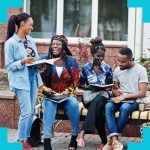
A Comparative Study of Gender Construction and its Impact on Healthy Relationships within English and Ghanaian Schools.
This research will explore the construction of gender within schools and its implications for forming healthy relationships and gender-based violence among youth aged 13-19 in England and Ghana. Schools are a platforms for conveying social knowledge and attitudes to young people, and may serve as sites for construction of gender stereotypes and for enabling social change (Lee and Collins 2008; Nonaka et al, 2012). The young people will work together through creative workshops to explore and reflect on how gender constructions manifest in everyday school interactions.
Involving Nadia Aghtaie and Afua Twum-Danso Imoh (School for Policy Studies), Judi Kidger (Population Health Sciences, Bristol Medical School), Lucy Condon (Bristol Medical School), Jess Bunyan and Will Taylor (Rising Art Agency), Georgina Yaa Oduro and Dorothy Takyiakwaa and Playpluzz Production Team (University of Cape Coast).
 Improving Access to Oral Health Services for Adult Survivors of Child Sex Abuse (CSA).
Improving Access to Oral Health Services for Adult Survivors of Child Sex Abuse (CSA).
Health professionals are often unknowingly work in close contact with survivors of CSA. The proximity and intimacy required in dental care alongside the differential in power dynamics can lead to potentially triggering unwanted memories or a traumatic response which results in patients avoiding dental visits. This research will work with adult survivors of child sex abuse to understand experiences of dental care and how we can improve access to dental services.
Involving Nilufar Ahmed, Patricia Neville and Angela Hague (Bristol Dental School) and Viv Gordon (Viv Gordon Company).
 Holding my Heart: Documentary and portraiture to advance the appreciation of 3D medical technologies.
Holding my Heart: Documentary and portraiture to advance the appreciation of 3D medical technologies.
An exploration of the role that 3D medical technologies can play in exploring one’s identity, patients’ perceptions of 3D medical models and the emotional implications that these can carry explored through the lens of congenital heart disease. The project will involve creating 3D heart models and portraits of heart patients and involve patients and NHS staff in the co-creation and co-curation of engagement activities.
Involving Giovanni Biglino (Bristol Medical School), Ana Baeza-Ruiz (Department of History of Art), Maria Fannin (School of Geographical Sciences), Paola Di Bella (Freelance Photographer), James Marshall-Baquedano (Abel Model Management) and Anna Farthing (University Hospitals Bristol and Weston NHS Foundation).
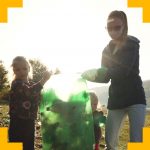 Motherhood in a Climate Crisis.
Motherhood in a Climate Crisis.
This project will use therapeutically-informed participatory theatre techniques to collaboratively explore concerns around reproductive decision-making for women in an era of unfolding climate crisis. Using workshops the research process will seek to reduce isolation and stigma for participants and to create effective resources to stimulate ongoing conversation on the ways that Climate Change impacts women’s lives.
Involving Maria Fannin (School of Geographical Sciences), Celia Turley (Freelance Creative Producer), Sophia Cheng (With Many Roots), Liz Mytton (Theatre in Flow) and Jo McAndrews (LifeKind).
 Reimagining Professional Development for Mathematics Teachers: Using creative processes to support mathematics teachers in becoming curriculum-makers for climate justice.
Reimagining Professional Development for Mathematics Teachers: Using creative processes to support mathematics teachers in becoming curriculum-makers for climate justice.
Much of the way we read the world, depends on mathematical literacy and mathematics teachers are therefore well placed to address particular issues of climate justice in the curriculum from this perspective. The research will design, develop and utilise a variety of creative processes to support mathematics teachers to reimagine how to explore issues of climate justice within their classrooms and novel approaches to their professional development.
Involving Tracy Helliwell (School of Education), Lauren Hennessy (School of Education), Emma Geen (Department of English) and Emilia Alvarez (School of Mathematics) and Klara Sroka (National Museum, Wales).
 Living Financial Resilience: A community research and design project with residents of Lawrence Hill.
Living Financial Resilience: A community research and design project with residents of Lawrence Hill.
In collaboration with the Wellspring Settlement, this co-research and co-design project explores lived experience of financial resilience and community support with the residents of Lawrence Hill. Together they will explore: What is lived experience of “financial resilience”? How can we create community-led and – centered services to support them on that journey?
Involving Daniella Jenkins and Anne Angsten Clark (Centre for Innovation and Entrepreneurship), Sharon Collard (School of Geographical Sciences), Lisa Dora (Boost Finance, Wellspring Settlement) and Hari Ramakrishnan (Talking Money / Boost Finance).
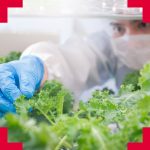 Growing Liveable Worlds: Ethical encounters between human and plant life.
Growing Liveable Worlds: Ethical encounters between human and plant life.
This project will generate insights into new ways of living well with plant species by asking participants to experience a ‘Living Lab’ within the speculative scenario of terraforming Mars. A hydroponic technogarden will engage participants to reflect on wider questions of science, technology, botany, materiality and ethics. It will consider the multiple ecological relationships between plants, automated hydroponics technologies, robotics and the human sensorium. By looking into the question of taking plants into outer space, the research seeks to shed light on how we relate to plants today and seed new ways to envision human-plant relations in the future, and the present.
Involving Franklin Ginn (School of Geographical Sciences), Jane Memmott and Bethany Eldridge (School of Biological Sciences), Katy Connor (Artist), Ella Good and Nicki Kent (Lead Artists of The Martian House).
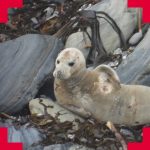 Space for Seals: Understanding the relationship between human stakeholders and seals to promote positive wildlife watching practices.
Space for Seals: Understanding the relationship between human stakeholders and seals to promote positive wildlife watching practices.
It is increasingly recognised that human health and wellbeing can be fostered through encounters with the natural world and wildlife. However, there also exists a conflict between the human desire to observe and interact with seals, the conservation of the species, individual seal welfare and the economy of which they are a part. This work will take a participatory and creative approach to explore the relationship between the seals and observers in order to promote the health and wellbeing of both groups.
Involving Leah Trigg (Bristol Veterinary School), Emma Roe (University of Southampton), Paul Hurley (Artist) and Sue Sayer (Seal Research Trust).
 Walking and Re-Creation.
Walking and Re-Creation.
This research will address the historical and contemporary inequity of walking by developing ways to counter the prohibitions placed upon walking, using walking itself to resist the erasure of ground-level histories in favour of top-down narratives, and continuing to assess the impact of cultural identity upon walking access, specifically in relation to gender and race. How can experimenting with different forms of walking potentially change our view of society, health, and history? Ultimately, this is a project that thinks through how progress through space can affect and effect social progress.
Involving Eleanor Rycroft (Department of Theatre), Suzanne Audrey (Centre for Public Health, Bristol Medical School), Jan Connett (Bristol Health Partners), Angie Belcher (Performer and Comedian), Ruth Pitter and Sophie Brown (Bristol Steppin Sistas).
 The MenoMakers’ Handling Box.
The MenoMakers’ Handling Box.
This research project aims to display hidden voices and help women to develop their own voice in this life stage. The research team know that there is an appetite for discussing menopause in creative settings, but know less about whether women are keener to enact or make menopause, talk about it, or do both together. They also have little knowledge about what methods and which artistic practices are most suitable for different groups of women and their specific symptoms. Through talking and making together they will explore some of these questions.
Involving Vanessa Beck (School of Management), Jessica Hammett (Department of History) and Lisa Nash (Socially Engaged Artist / Facilitator and Arts Programmer).

